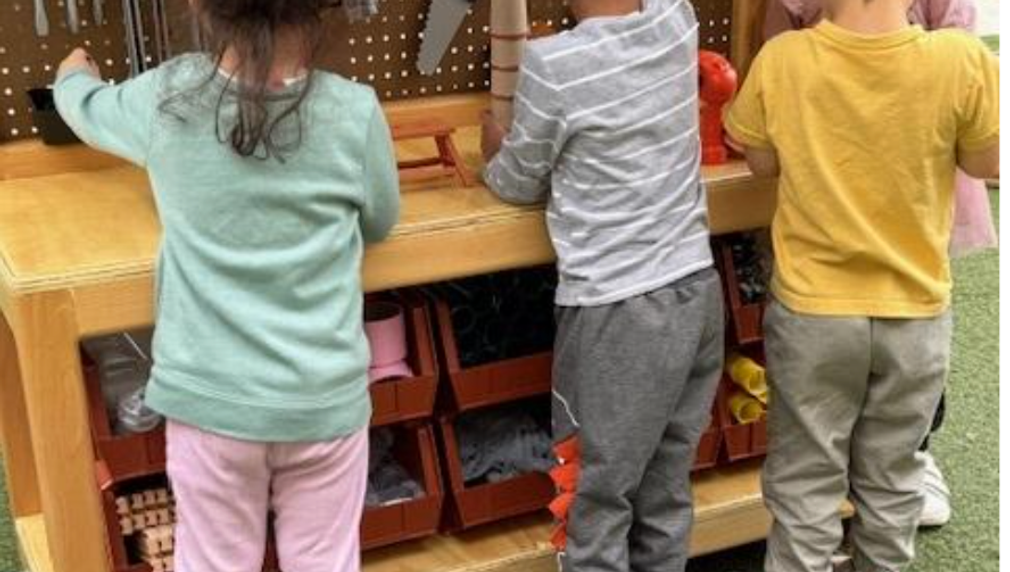Ready, Set, Build! Little Makers STEAM Lab
The Little Makers STEAM Lab brings hands-on, standards-aligned maker education to early learners by merging Reggio Emilia, Montessori, and loose parts theory. Through real tools, creative furniture, and playful STEAM materials, students build curiosity, motor skills, and problem-solving abilities. Designed for PK–2 classrooms, the program equips teachers with engaging curriculum and PD to spark joyful learning that bridges early childhood and K–12 education.

What is the primary issue area that your application will impact?
K-12 STEAM education
In which areas of Los Angeles will you be directly working?
South LA
In what stage of innovation is this project, program, or initiative?
Pilot or new project, program, or initiative (testing or implementing a new idea)
What is your understanding of the issue that you are seeking to address?
Access to high-quality, hands-on early childhood STEAM education is limited in many under-resourced communities, particularly in Title I schools. Early learning environments often lack the tools and curriculum that foster critical thinking, creativity, and problem-solving aligned with both early childhood theories and academic standards like Common Core and NGSS. As a result, young learners miss the opportunity to develop foundational STEAM skills during a critical period of cognitive and social-emotional development. This disconnect contributes to long-term achievement gaps. The Little Makers STEAM Lab addresses this issue by integrating developmentally appropriate maker education with Reggio Emilia, Montessori, and constructivist approaches—bringing real tools, upcycled materials, and STEAM-based lessons into early learning spaces.
Describe the project, program, or initiative this grant will support to address the issue.
The Little Makers STEAM Lab is an innovative early childhood education initiative designed to bring hands-on, developmentally appropriate STEAM learning to Title I schools through the lens of maker education. This grant will support the installation of two fully equipped Little Makers Labs—one in a TK classroom at an LAUSD elementary school and one in a Head Start center near our warehouse—to build local community connections and pilot the program with high-need student populations.
Each lab includes purpose-built furniture (maker benches, light tables, and magnetic walls), upcycled “loose parts” from our sustainability-focused warehouse, and real, child-safe tools like mallets and tape measures. Aligned with early childhood educational theories such as Reggio Emilia and Montessori, these labs invite young learners to engage in open-ended, tactile exploration that fosters creativity, collaboration, and early STEAM thinking.
The program includes teacher professional development, classroom lesson plans, and student activity sheets designed by our in-house education team. Installations will be followed by support visits and feedback collection from school staff to inform ongoing development. This pilot phase will lay the foundation for broader district-wide adoption by demonstrating impact and scalability.
Describe how Los Angeles County will be different if your work is successful.
If successful, the Little Makers STEAM Lab will transform how early childhood education is delivered in Los Angeles County, particularly in underserved communities. Classrooms will become vibrant, hands-on learning environments where young children build confidence, curiosity, and foundational STEAM skills through real-world making. Educators will be equipped with the tools and training to integrate creative, standards-aligned instruction rooted in Montessori and Reggio Emilia approaches. Our long-term vision is to expand the program across all LAUSD TK and early learning classrooms, Head Start centers, and community-based preschools—creating equitable access to high-quality STEAM experiences. As the program scales, it will foster a county-wide culture of innovation, close opportunity gaps, and prepare a generation of young Angelenos to thrive as thinkers, makers, and problem-solvers.
Approximately how many people will be impacted by this project, program, or initiative?
Direct Impact: 80
Indirect Impact: 600